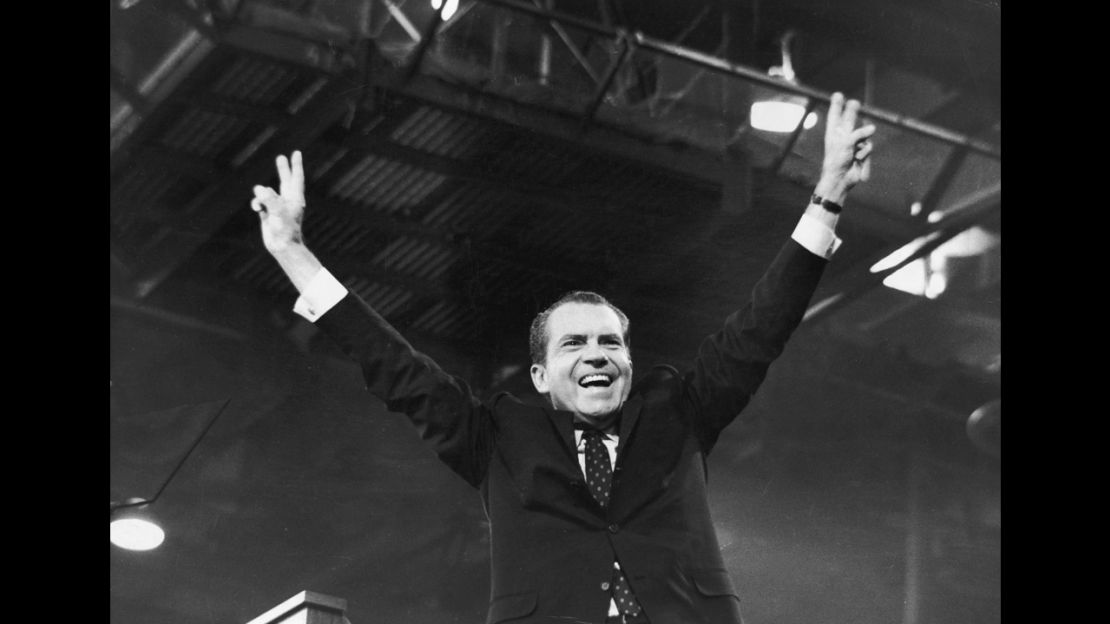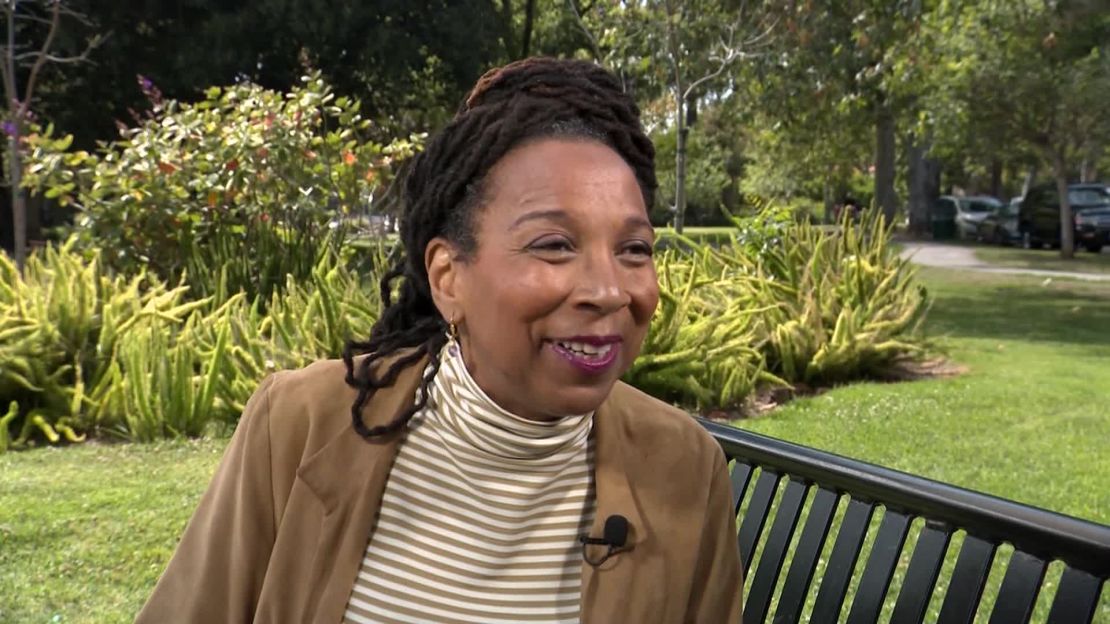A version of this story appeared in CNN’s Race Deconstructed newsletter. To get it in your inbox every week, sign up for free here.
Spare a thought for critical race theory. It wasn’t always a conservative bogeyman.
Especially over the past several months, Republicans have distorted CRT – an academic frame that scholars such as Kimberlé Crenshaw have been using in graduate-level courses for decades to interrogate how the legal system entrenches racism – into a catchall to describe things they don’t like.
In this bastardized telling, CRT is whatever Republicans want it to be; it comes in many guises. “Black Lives Matter” is one name for CRT. “Social justice” is another. “Identity,” yet another. “Reparations.” “Ally-ship.” “Diversity.”
But to linger on what CRT is, or isn’t, is to miss the more pressing concern: Why have Republicans latched onto a decades-old academic term?
” ‘Strung together, the phrase “critical race theory” connotes hostile, academic, divisive, race-obsessed, poisonous, elitist, anti-American,’ ” explained Christopher F. Rufo, one of the conservative activists who – with the help of Fox News, a network that’s become its own language – engineered the panic over CRT.
Because so many Americans don’t know what CRT is, it’s the perfect tool for scaring White conservative voters with made-up problems – for mobilizing them against the racial awakening of the past year. Here’s how we got here:

The backlash to CRT echoes the 1960s
The panic over CRT is hardly the first time that the US has seen such ethnonationalist fearmongering.
In a recent Twitter thread, Pomona College politics professor Omar Wasow argued that one way to understand the anxiety over CRT is as “a reactionary counter-mobilization.”
Wasow, who was previously at Princeton University and whose research focuses largely on protest movements, said that he was struck by how the present-day backlash to CRT echoes the dynamics of the 1960s.
“What we saw in some cases in the ’60s was that, as the civil rights movement was able to capture the moral high ground in a national conversation on race, that knocked pro-segregation forces on their heels,” he told CNN. “There was a period of trying to regroup and find an issue to mobilize around when, nationally, being pro-segregation became highly stigmatized.”
Republicans sought to reframe the world. For instance, they heeded the cruel logic of “law and order,” a dog whistle used against the civil rights protests of the era. This maneuvering was part of what University of Arkansas political science professors Angie Maxwell and Todd Shields call the “Long Southern Strategy,” a series of decisions on race, religion and feminism that Republicans made starting in the ’60s to court White conservative voters in the South.
In the year since the murder of George Floyd and the renewed demands for racial justice, Republicans have once again detected a need to reposition themselves, to turn a cultural shift into a sense of crisis that they can use to their advantage. (Republicans are doing something similar in their war against transgender students, as The Atlantic’s Adam Serwer keenly pointed out.)
“We saw Donald Trump try to run on ‘law and order’ and lose. It didn’t seem to have the same punch that it did in the ’60s, when Nixon invoked ‘law and order’ and won the White House. So, there’s been this process of searching for a new issue,” Wasow said. “There was a period when leading Republicans were complaining about ‘cancel culture,’ how Dr. Seuss was supposedly being canceled. But it never seemed to stick. So, I think that we’re seeing this kind of elite process of trying to find an issue to mobilize around for the 2022, and maybe even 2024, elections. And CRT is one that’s really hit a nerve.”
Conservative media outlets also play a role in anti-CRT mobilization, broadcasting an invented problem to their millions of viewers.
“Instead of debating CRT’s merit, right-wing talkers have simply sought to demonize it,” CNN’s Oliver Darcy wrote for the Reliable Sources newsletter. This conscious obsession with CRT has helped it leap “from the TV screen into state legislatures and local communities.”

The outrage over CRT is also about White identity politics
It makes sense to situate the controversy around CRT not only within the history of race and racism in the US but also within the larger arc of demographic change.
One crucial dimension of this change: the country’s ballooning racial diversity and its effect on White identity politics, which Duke University political science professor Ashley Jardina describes as White Americans’ increasingly active identification with their racial group.
“Various studies find that when White people are exposed to information about social change – demographic change, in particular – they express more politically conservative views,” Wasow told CNN. “So, there’s a larger conversation happening right now about whether the US is going to be a multiracial democracy – in which there’s no dominant group – or hold onto what has historically been a kind of ethno-racial majority, a White Christian-dominant majority.”
It’s no exaggeration to say that the assault on the US Capitol on January 6 – when insurrectionists waving Confederate flags and pledging their allegiance to Trump tried to overturn the 2020 presidential election – was a deadly manifestation of a White nationalist vision.
Wasow added that such dueling visions are at the core of the contest between Trump and his ilk on the one hand and figures such as Barack Obama and Joe Biden on the other.
In publicly advocating for the birther conspiracy theory about a decade ago, Trump wasn’t merely slandering one of his political opponents. He was attempting to delegitimize the multiracial coalition that installed Obama in the White House.
This battle over a country in transition continues today.
“I think that the panic over CRT can be seen as part of this underlying anxiety about the status of White Americans in a changing country. That fear is sharper in moments like the aftermath of a protest movement calling for things like reforming policing and thinking harder about race in schools and hiring,” Wasow said.
These demands unsettle the status quo. Anti-CRT mobilization, then, is really a means of reaffirming the perceived legitimacy of the status quo.
But let’s give Crenshaw the final word on the controversy. After all, she’s one of the pioneers of CRT.
“Critical race theory is not anti-patriotic,” she told CNN’s Jason Carroll. “In fact, it is more patriotic than those who are opposed to it – because we believe in the 13th and the 14th and the 15th Amendments. We believe in the promises of equality. And we know we can’t get there if we can’t confront and talk honestly about inequality.”

















